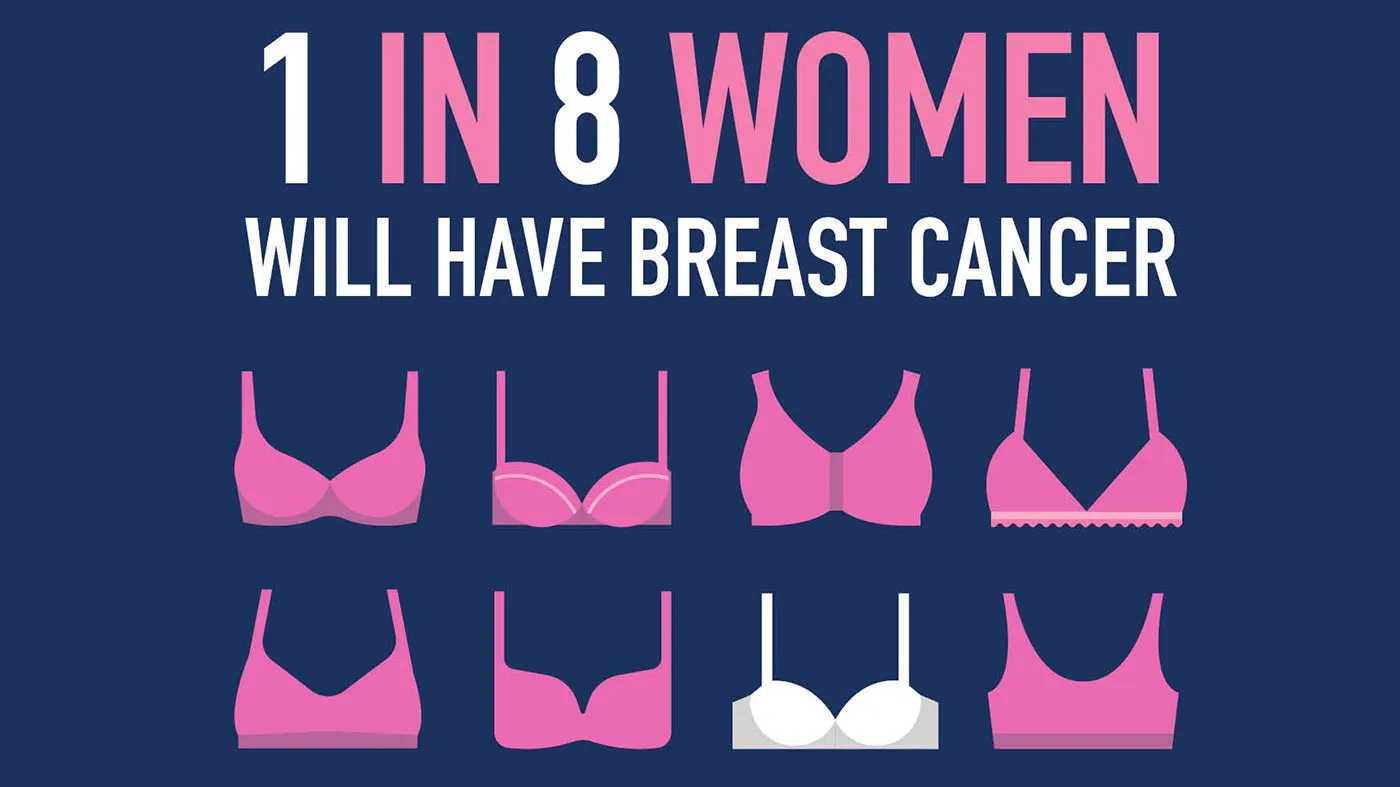One in eight women will have breast cancer, the most diagnosed cancer among American women.
VA understands how startling that number can be, but we have your back when it comes to assessing your risk. While no direct link has been found between deployment and increased risk for breast cancer, we’ve heard your concerns and we’re continuing to study if toxic exposures may be a cause of breast cancer.
In support of these efforts, the “Dr. Kate Hendricks Thomas Supporting Expanded Review for Veterans in Combat Environment (SERVICE) Act” was established to ensure that Veterans deployed in specified locations during certain periods are eligible for a breast cancer risk assessment and mammogram. This is if it is determined to be clinically appropriate based on your personal risk assessment regardless of your enrollment in VA health care.
Understanding your risk
Common risk factors for breast cancer include age, race, weight and use of alcohol. Other risk factors that may increase your chance of developing breast cancer are connected to your family and personal medical history. These include factors such as when you went through puberty, when you had your first pregnancy or if you’ve experienced pregnancy loss.
The use of certain medications, past chest radiation, history of breast biopsy or breast cancer, and certain breast characteristics, such as how dense your breasts are, can play a role in determining your risk as well.
Exposure to toxic substances
Toxic exposure, such as burn pits, could be a risk factor, but research to date has not shown that deployment increases your risk for breast cancer. Based on the SERVICE Act, if you served in the following locations, we encourage you to speak with your VA health care team to assess your risk for breast cancer:
- Iraq between Aug. 2, 1990, and Feb. 28, 1991, and from March 19, 2003, until burn pits (areas of land used for the open-air combustion of trash and other solid waste products) were no longer used;
- The Southwest Asia theater of operations, including Kuwait, Saudi Arabia, Oman, and Qatar, from Aug. 2, 1990, until burn pits were no longer used;
- Afghanistan, Djibouti, Syria, Jordan, Egypt, Lebanon and Yemen from Sept. 11, 2001, until burn pits were no longer used.
While we emphasize the importance of receiving a breast cancer risk assessment if you served in the areas above, we recommend you speak with your VA health care team to assess your risk, no matter your service history.
Keeping an eye out for symptoms
You may be surprised to learn that both the American Cancer Society and VA no longer recommend routine clinical of self-breast exams for breast cancer screening. This means that during regular checkups your doctor won’t physically examine your breasts for lumps as part of the screening process.
However, you should always tell your doctor about any changes you notice in your breasts, including lumps, skin changes, pain or nipple discharge.
Screening process
We want to make sure your risk assessment is simple and painless. Your doctor will begin by asking you questions about your military service and potential toxic exposures, your family and personal medical history and other risk factors. If they determine that there is a need, they will help you get a mammogram scheduled. During this procedure, a trained professional will take X-ray images of your breasts.
For women over 40, mammograms are the best test to look for early signs of breast cancer, even if you don’t show signs or symptoms.
Reducing your risk
Staying up-to-date on your breast cancer screenings and continuing discussions about your risks with your doctor will help you keep up with your health. Besides that, there are many ways to stay healthy, such as exercising and maintaining a healthy weight. Additionally, avoiding or limiting your alcohol intake can make a difference.
Breast cancer services and resources available at VA
Breast cancer support and resources available through VA include:
- Breast cancer screening (including mammograms, ultrasounds, and MRI)
- Breast biopsy and surgery
- Cancer diagnosis and treatment
- Full-service oncology (the study and treatment of tumors)
- Connection to clinical trials
- Mental health care
Breast cancer screening could save your life. Early detection is key to improving outcomes and increasing your chance of successful treatment. Speak with your VA health care team to assess if you’re at risk. To learn more about breast cancer screening at VA, download our SERVICE Act handout or call 1-855-VA-WOMEN for more information.
Enrolled Veterans: If you do not have a primary care provider, you may contact your local VA facility to schedule a breast cancer risk assessment appointment with the SERVICE Act POC provider.
Unenrolled Veterans: You may enroll in VA health care. If you are not eligible or do not desire enrollment, you will be directed to Register only. After enrollment or registration, you may contact your local VA facility to schedule an appointment with the SERVICE Act POC provider.
Topics in this story
More Stories
Pacific Islands VA has opened a new urgent care clinic inside the Daniel K. Akaka VA Clinic.
From one battle to the next, including four types of cancers, Eliot Winokur’s resilience remains unshaken.
As severe weather threatened Mississippi, local news warned of a dangerous outbreak of tornadoes. A VA nurse stepped up.






You never mention anything about exposure at Camp LeJuene.